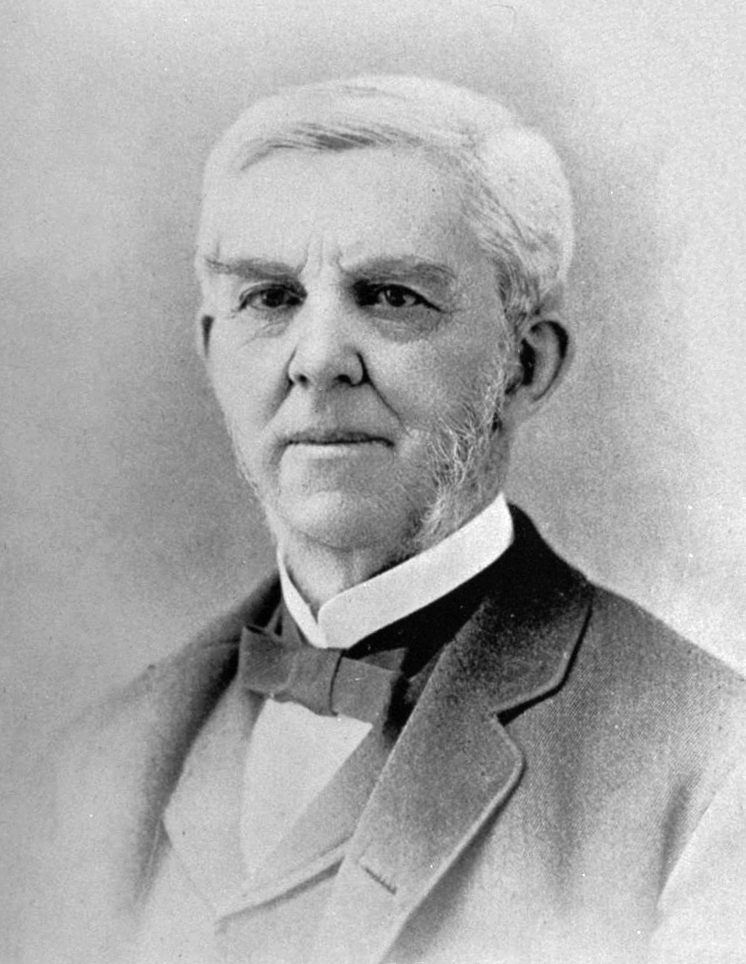citato in Andrew Weil e Winifred Rosen, Dal cioccolato alla morfina. Tutto quello che dovete sapere sulle sostanze che alterano la mente, traduzione di Fabio Bernabei, Arcana, Roma, 2007, p. 175
Oliver Wendell Holmes, Sr. Frasi e Citazioni
Origine: Natural Hygiene history - 2, 5-03-2011, en http://naturalhygienesociety.org/past2.html,
Oliver Wendell Holmes, Sr.: Frasi in inglese
Origine: The Poet at the Breakfast Table (1872), p. 120 The Writings of Oliver Wendell Holmes, Vol. 3 (1892)
“Faith loves to lean on time's destroying arm,
And age, like distance, lends a double charm.”
Urania: A Rhymed Lesson (1846), p. 11.
Homeopathy and Its Kindred Delusions (1842)
“Knowledge and timber shouldn't be much used, till they are seasoned.”
The Autocrat of the Breakfast Table (1858)
The Autocrat of the Breakfast Table (1858)
The Autocrat of the Breakfast Table (1858)
'Scholastic and Bedside Teaching', Introductory Lecture to the Medical Class of Harvard University (6 Nov 1867). In Medical Essays 1842-1882 (1891), 302.
The Poet at the Breakfast Table (1872)
Homeopathy and Its Kindred Delusions (1842)
The Autocrat of the Breakfast Table (1858)
Hymn at the Funeral Services of Charles Sumner; reported in Bartlett's Familiar Quotations, 10th ed. (1919). Compare Browning, Pippa Passes: "God's in his heaven— All's right with the world".
The Autocrat of the Breakfast Table (1858)
Origine: The Professor at the Breakfast Table (1859), Ch. V.
"Contentment".
The Autocrat of the Breakfast Table (1858)
Rights; reported in Bartlett's Familiar Quotations, 10th ed. (1919).
“It went to pieces all at once—
All at once and nothing first,
Just as bubbles do when they burst.”
The Deacon's Masterpiece; reported in Bartlett's Familiar Quotations, 10th ed. (1919).
The Autocrat of the Breakfast Table (1858)
The Music Grinders; reported in Bartlett's Familiar Quotations, 10th ed. (1919).
“Thou say’st an undisputed thing
In such a solemn way.”
To an Insect; reported in Bartlett's Familiar Quotations, 10th ed. (1919).
Josephus Daniels, ambassador to Mexico, sent this quotation to President Franklin D. Roosevelt, January 1, 1936, in a note of New Year greetings, with this comment: "Here is an expression from Holmes which, if it has missed you, is so good you may find a use for it in one of your 'fireside' talks". Reported in Carroll Kilpatrick, ed., Roosevelt and Daniels (1952), p. 159.
The Autocrat of the Breakfast Table (1858)
The Autocrat of the Breakfast Table (1858)
“The axis of the earth sticks out visibly through the center of each and every town or city.”
The Autocrat of the Breakfast Table (1858)
Holmes' critique of "single file" thinking foreshadows Fyodor Dostoevsky's attack, in an essay of October 1876, on what he called "the straight-line approach". See Dostoevsky, A Writer's Diary, Volume 1: 1873–1876 (Northwestern University Press, 1997), pp. 641–57, 721–29.
The Autocrat of the Breakfast Table (1858)
Reported in Josiah Hotchkiss Gilbert, Dictionary of Burning Words of Brilliant Writers (1895), p. 596.
“The hat is the ultimum moriens of "respectability."”
"Ultimum moriens," the Autocrat explains, "is old Italian [i.e. Latin], and signifies last thing to die."
The Autocrat of the Breakfast Table (1858)
“To be seventy years young is sometimes far more cheerful and hopeful than to be forty years old.”
On the Seventieth Birthday of Julia Ward Howe (May 27, 1899); reported in Bartlett's Familiar Quotations, 10th ed. (1919).
